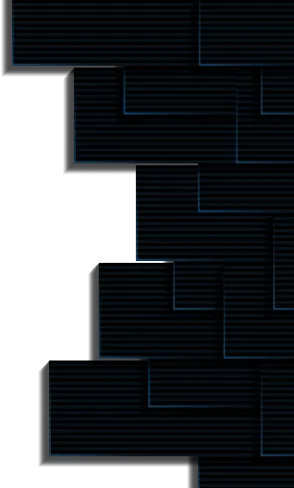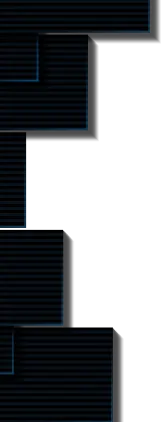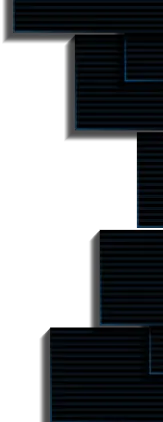DXdao
Rubin

Bringing Decentralization to DeFi.
About DXdao
DXdao is a DAO, founded in May 2019 that creates, governs, and expands DeFi protocols and products. It is often considered a highly scalable DeFi ecosystem collective. DXD is the DXdao native ERC20 token. DXD holders will have future access to a range of services and features, as well as a percentage of fees generated by the DXdao community's applications.
Decentralization is DXdao's primary guiding principle, and DXdao's goods and governance are permissionless and decentralized. Decentralization means eliminating dependence on central operators and ensuring that all citizens have equal access to public infrastructure.
DXdao has an on-chain Treasury, and on-chain proposals compensate all contributors. Product updates, treasury moves, and signal recommendations that drive DXdao's path are all managed by DXdao governance.
Governance & contribution
DXdao governance is unique in the DAO space, using reputational governance and holographic consensus.
It has a meritocratic governance framework in place that compensates those who contribute to its products, community conversations, and objectives.
REP, a non-transferable asset on the Ethereum blockchain, determines the voting power. REP holders govern the DXdao ecosystem. REP is accumulated by voting on proposals with a single Ethereum address. When a member contributes to DXdao, more REP is earned, and when someone contributes less, they lose REP through inflation.
Its governance program, DXvote, is in charge of interacting with the smart contracts that keep the DAO and Treasury safe and secure. DXvote is all about maximum decentralization. It has a lot more control and freedom over governance because of using open source.
On DXvote, anyone can make a proposal. Proposals have detailed descriptions of what they seek to accomplish, and actions that can be anything on the blockchain, such as moving tokens, updating applications, or minting REP. Anyone can guess whether a proposal will pass or fail by staking DXD/GEN tokens. This aids in the collaborative voting process.
Proposals can currently only be voted on by REP holders. DXdao is nearing the completion of its Governance 2.0 effort, which will offer DXD and REP holders an on-chain voting right.
The preferred platform for proposing formal recommendations to the DXdao community is DAOtalk.org. This is where you can present and receive comments for an on-chain vote on the plans, a contributor proposal, or any other project. Proposals are frequently changed at this stage to reflect feedback from the community in the comments area and polls.
Products
DXdao presently offers the following DeFi devices, which are built and managed by the company:
1. Swapr
It's a multi-chain AMM with various unique features, such as DIY farming, LP governance, etc. Swapr was developed within the DXdao community and is the first automated market maker (AMM) to allow for changeable swap costs through governance. It is the first DeFi protocol on Ethereum to be launched by a DAO.
2. Carrot
Carrot provides permissionless access to develop community-driven programmable incentives that distribute rewards based on pre-defined parameters.
Carrot allows projects to create tokens that reward users based on fulfilling particular, programmable conditions. Carrot tokens can be distributed to liquidity providers or given to community members who assist in achieving the stated aim.
3. DXgov
DXgov is the team in charge of all governance products and serves as an umbrella term. This encompasses internal DAO development and externally facing solutions to operate and control other DAOs. Among the current offerings are:
- DXvote
- Our internal governance application
- Governance 2.0 platform - IN DEVELOPMENT
- Guilds - IN DEVELOPMENT
DXvote was the first step in gaining control over the governance solution and interface. Besides improving a number of things, DXdao's architecture also gives them control over their governance platform, which is one of the most significant benefits.
DXdao also created a unique set of minimum governance tools based on stand-alone contracts and architecture along the way. Guilds can improve the present "standard" of governance in the sector by using a more decentralized system with liquid ERC20 token voting.
4. Omen
It's a multi-chain, fully decentralized prediction market built on the Gnosis conditional token system. Users can create and engage in information markets on various themes and stake their coins on the results.
When an Omen market reaches its end date, anyone can begin the crowdsourcing process to identify the correct solution. If a dispute arises, an arbitrator renders a decision.
5. Aqua
Aqua is a platform for conducting transparent token auctions with a fair price discovery process. It was created to make everyone's life easier.
Not all tokens are created equal, and not all projects have the exact requirements. It provides the key infrastructure that will suit your needs, whether you want to execute an IDO, a private sale, a fixed price sale, a batch auction, use a bonding curve, run token buy-backs, or collateral liquidation auctions.
Every project could integrate its sales mechanism into the system to represent its social and technical requirements. Because of the variety of sale processes available, sellers can select the one that perfectly suits their tokenomics, investor community, and funding stage.
As a result, Aqua is a one-stop-shop protocol that gives crypto companies all of the tools they need to generate finance in a decentralized manner while they focus on development. It also allows investors to support and invest in crypto initiatives in the most transparent and trustworthy way possible.
6. Mesa
DXdao owns, maintains, and hosts an Open Source interface for the Gnosis Protocol, named Mesa. Experience a permissionless DEX that allows for ring trades to increase liquidity. Ring trades are order settlements that share liquidity across all orders instead of a single token pair, making them ideal for trading prediction market tokens and the long tail of all tokenized assets.
Summary & conclusion
DXdao began as a radical decentralization experiment. Organizations that would reside wholly on-chain have always piqued the interest of the Ethereum community. The narrative of "The DAO" drew the attention of many in the space, and its spectacular collapse piqued the community's interest in finding new ways to organize people.
DXdao has made significant progress toward becoming a durable, transparent, and decentralized organization after three years of on-chain governance. DXdao approved Governance 2.0, a unified plan for reputation (REP) and token-based (DXD) governance, in early 2021. The new structure intends to establish a long-term governance system that involves all key stakeholders and encourages decentralization.
The presence of DXdao for three years has demonstrated that a worldwide organization coordinating over the internet is conceivable.





Subscribe to receive Alpha!
Join 4.3k subscribers from renowned companies worldwide and get a weekly update in your inbox. Stay updated on the latest and finest projects and product updates.

